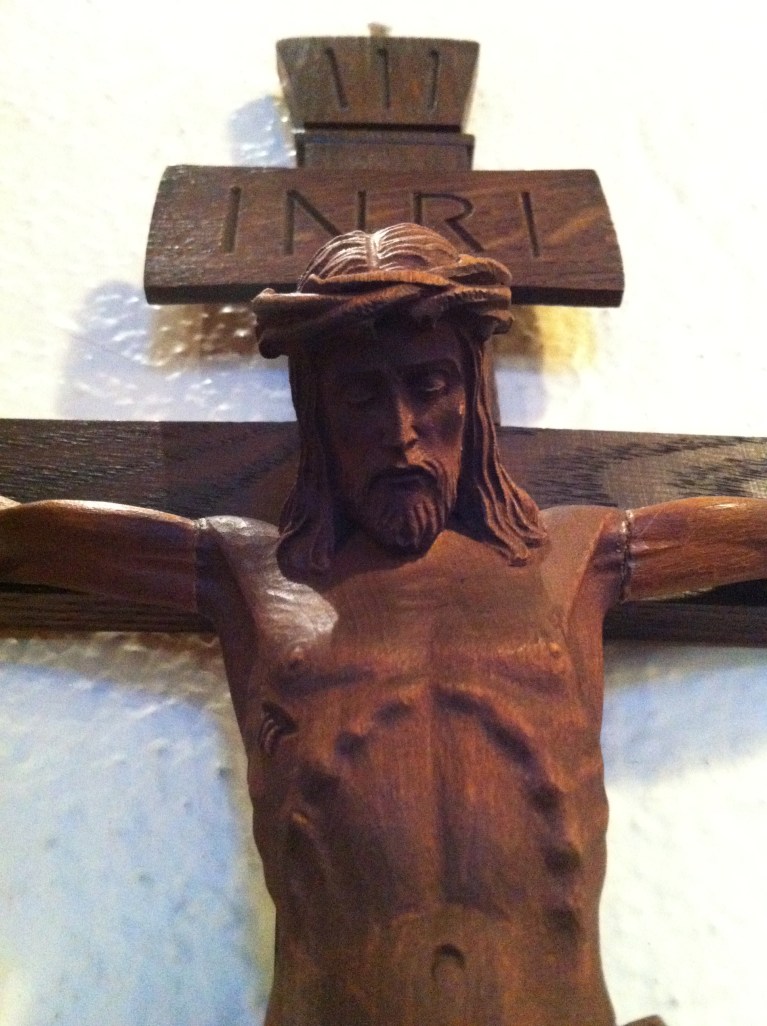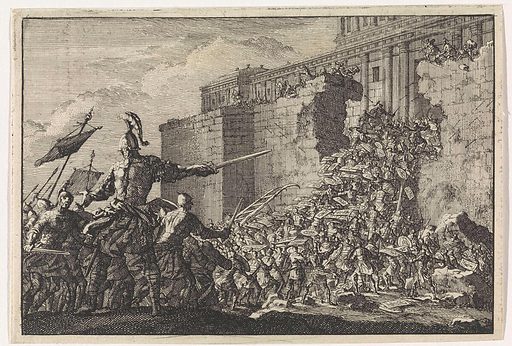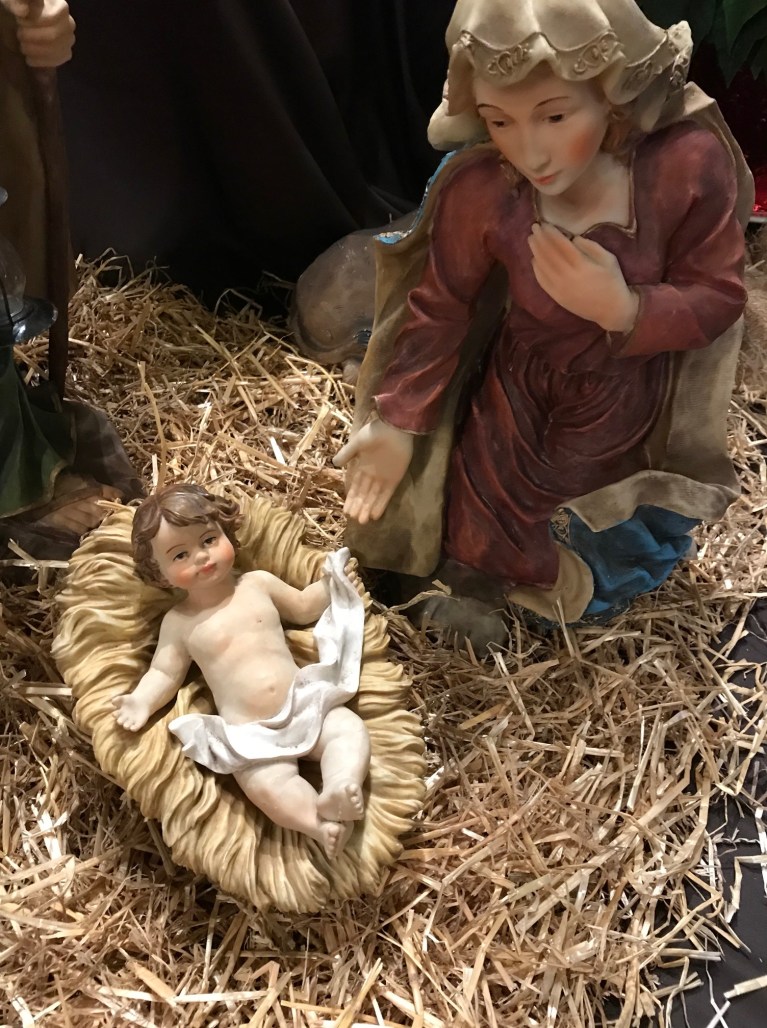Sermon for April 14, 2024
Readings:
Preachers like to think that we are clever and that we have much to add to the reading of God’s word, but sometimes we really don’t. Sometimes we just need to let you hear the story and then mostly get out of the way. You heard a portion from the Book of Acts this morning, but you didn’t get the whole story and I really want you to hear the whole story. First let me set the scene:
After Jesus rose from the grave on Easter Sunday, after he ascended into heaven, and after the Holy Spirit had come down on Pentecost 50 days later, the disciples were in Jerusalem still worshipping God in the temple, and still trying to make sense out of everything that they had just witnessed. Miracle after miracle that had just turned their understanding of the world upside down. They had witnessed Jesus crucified and then three days later rise from the dead. They had seen him in the flesh, not some ghostly vision, but in the flesh. They had eaten with him. This was an experience of God’s power like no other, and before this resurrected Jesus ascended into heaven he said to his disciples: YOU will receive power from the Holy Spirit. You will receive power and you will be my witnesses. And Jesus ascended into heaven. And yes, we know that 10 days later another miracle occurred, the miracle of Pentecost, and that the Holy Spirit did come down on those disciples. The disciples received power from that Holy Spirit. And shortly after that they were headed back into the temple to pray, because of course it doesn’t matter how much Holy Ghost power you have or you think you have, you still need to pray and pray regularly.
Anyways, that is where our story from Acts this morning really begins, after Pentecost, with the disciples headed into the temple to pray.
3 Now Peter and John were going up to the temple at the hour of prayer, the ninth hour. 2 And a man lame from birth was being carried, whom they laid daily at that gate of the temple which is called Beautiful to ask alms of those who entered the temple. 3 Seeing Peter and John about to go into the temple, he asked for alms. 4 And Peter directed his gaze at him, with John, and said, “Look at us.” 5 And he fixed his attention upon them, expecting to receive something from them. 6 But Peter said, “I have no silver and gold, but I give you what I have; in the name of Jesus Christ of Nazareth, walk.” 7 And he took him by the right hand and raised him up; and immediately his feet and ankles were made strong. 8 And leaping up he stood and walked and entered the temple with them, walking and leaping and praising God. 9 And all the people saw him walking and praising God, 10 and recognized him as the one who sat for alms at the Beautiful Gate of the temple; and they were filled with wonder and amazement at what had happened to him.
11 While he clung to Peter and John, all the people ran together to them in the portico called Solomon’s, astounded. 12 And when Peter saw it he addressed the people, “Men of Israel, why do you wonder at this, or why do you stare at us, as though by our own power or piety we had made him walk? 13 The God of Abraham and of Isaac and of Jacob, the God of our fathers, glorified his servant[a] Jesus, whom you delivered up and denied in the presence of Pilate, when he had decided to release him. 14 But you denied the Holy and Righteous One, and asked for a murderer to be granted to you, 15 and killed the Author of life, whom God raised from the dead. To this we are witnesses. 16 And his name, by faith in his name, has made this man strong whom you see and know; and the faith which is through Jesus[b] has given the man this perfect health in the presence of you all. 17 “And now, brethren, I know that you acted in ignorance, as did also your rulers. 18 But what God foretold by the mouth of all the prophets, that his Christ should suffer, he thus fulfilled. 19 Repent therefore, and turn again, that your sins may be blotted out, that times of refreshing may come from the presence of the Lord,
You see, once you hear the whole story, I don’t really think I need to add much more to that. Peter and John had power, but they knew where it really came from. All of our power, as Christians comes through Jesus and the Holy Spirit. In a moment, we will all stand and affirm our belief in the resurrection. We celebrate it at every mass, but of course especially at this time of year, in Eastertide. But if Jesus can do that, if Jesus can come back from the dead, then what can’t he do? Is faith in this Jesus just some fond hope of heaven, or is there real power, in this world, that can be had by calling upon his name? Can the power of Jesus really heal people, change people? Obviously, unbelievers question whether or not there is any power in Jesus’s name to actually change anything in this world, but it is surprising sometimes how much believers question it too. There are a lot of Christians who think that it is really up to us to fix this broken world of sin and suffering through our own enlightened choices. But the whole story from Acts this morning, makes it very clear that Peter and John recognized that there was real power in calling on Jesus’s name. It is power that comes from God, not from ourselves or our own piety or moral perfection. The power we have as the church is the same power that healed the man outside the temple that morning. It is the most precious thing we have to give anyone. It is still something worth more than silver and gold.











You must be logged in to post a comment.